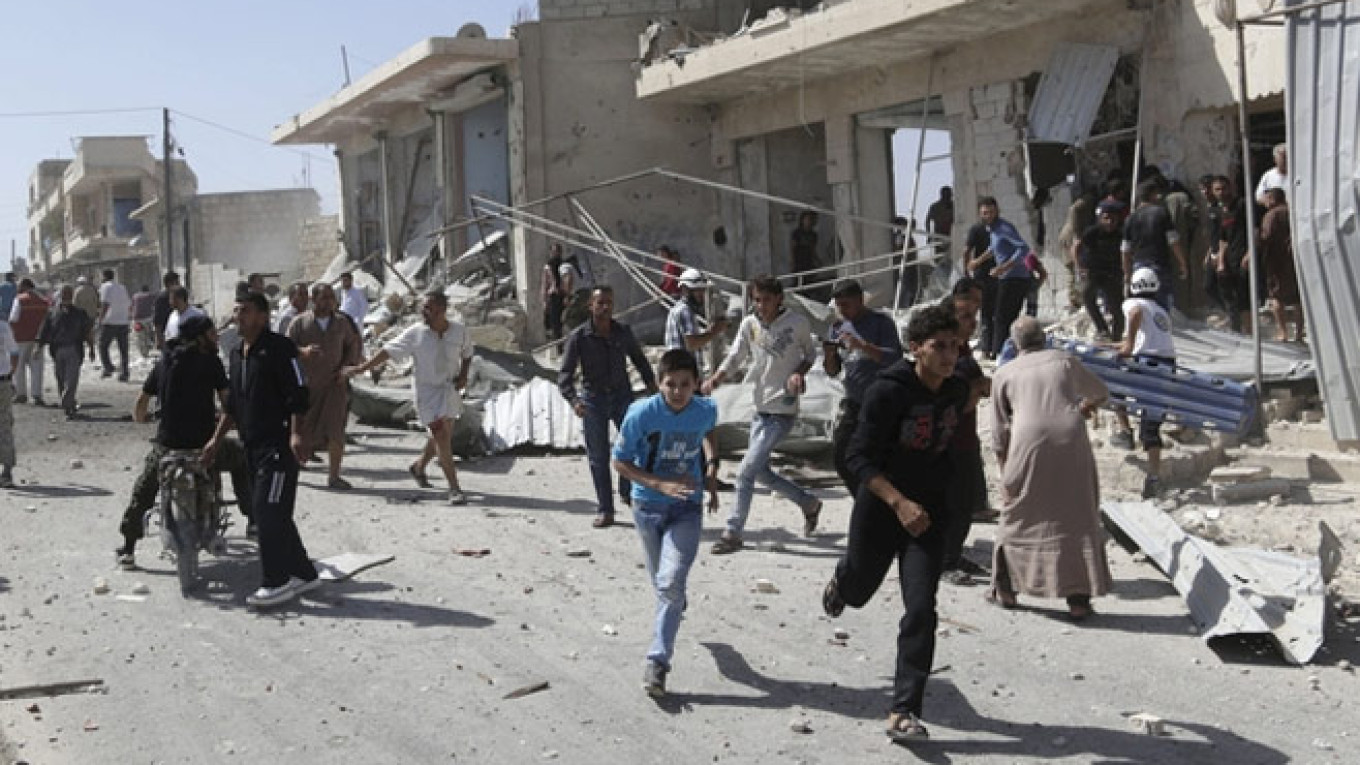President Vladimir Putin's Syrian gambit has catapulted the Russian leader to the center of international diplomacy, winning him a much-coveted bilateral meeting with U.S. President Barack Obama.
At a minimum, Putin has ensured that Russia will have a key role in a postwar settlement in Syria, protecting its interests, while creating a situation in which the West might owe him a geopolitical favor.
But whether Moscow could capitalize on these tactical gains depends on Russia's actions on the ground in Syria and its agility in negotiating a viable diplomatic settlement.
Moscow's immediate objective is to shore up Syrian President Bashar Assad's regime from further territorial losses and secure his international recognition as a partner in fighting the Islamic State. The latter in the form of the Russian-drafted United Nations Security Council statement has been blocked by Washington.
Assad's deteriorating position, however, has been due to non-Islamic State rebels from Jaysh al-Fateh and Jaysh al-Islam backed by Turkey, Saudi Arabia and Qatar. Using Russian airplanes to attack these non-Islamic State forces makes Russia a direct participant in a bloody sectarian war and a target for Sunni jihadi groups while raising the risk of a proxy war with other powers.
Moscow's public language suggests it does not intend to distinguish between non-Islamic State and Islamic State fighters, labeling them all as "terrorists." A Russian-backed Assad offensive to regain control of the Idlib province, now free of the Islamic State, but where non-Islamic State rebels threaten Assad's stronghold in Latakia, would hugely escalate the war causing large civilian casualties and more refugees.
Avoiding such an escalation would require Moscow to limit the airstrikes to strictly Islamic State targets in eastern Syria while forcing Assad to halt devastating barrel bombings of population centers. An intensive diplomatic effort involving Russia, the U.S., Saudi Arabia, Qatar, Turkey and Iran is required to stop the fighting between Assad and non-Islamic State forces and secure a political transition in which Assad, stripped of all executive power, would remain a party.
Iran and Turkey's latest success at negotiating a UN-backed cease-fire and a no-fly zone in northern Idlib and Zabadani provides a useful template.
Unfortunately, Moscow's body language now signals it is going all in to secure Assad's military victory. It's a simpler plan fraught with debilitating mission creep.
Vladimir Frolov is president of LEFF Group, a government relations and PR company.


